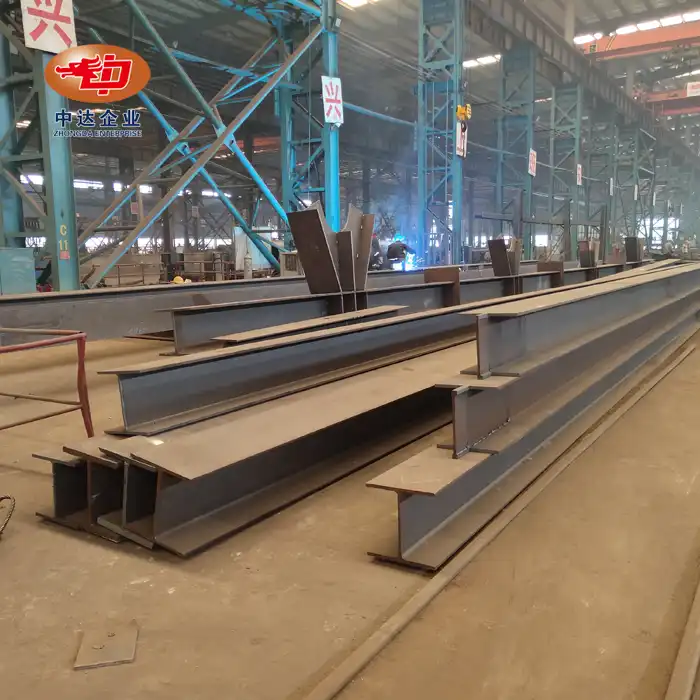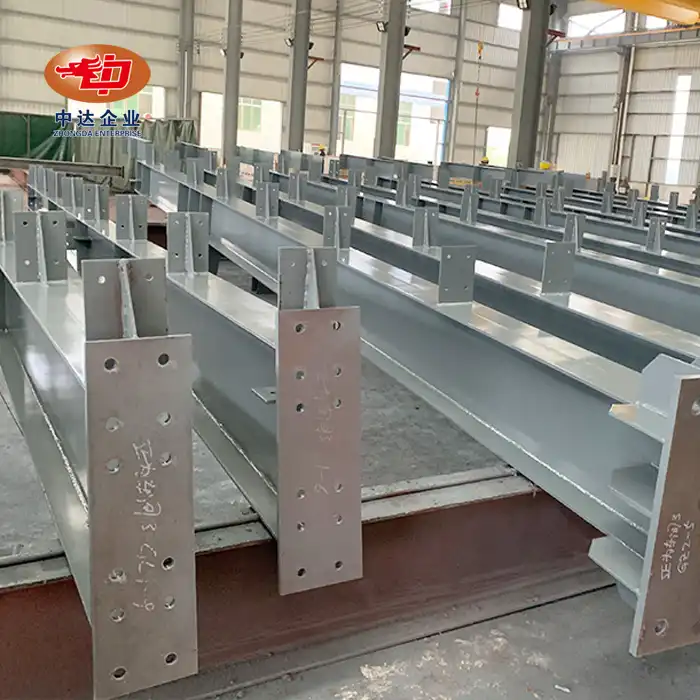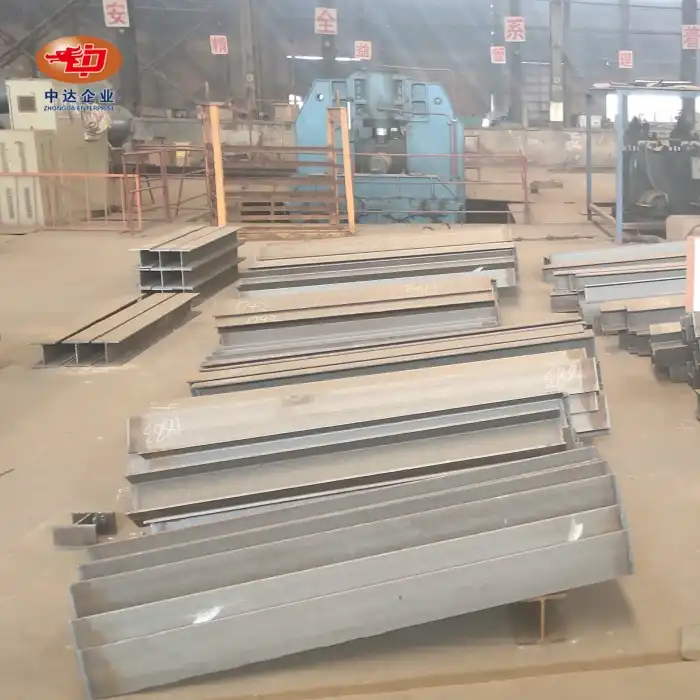The Fundamental Components of Steel Cable-Stayed Bridges
Deck Structure and Its Role in Load Distribution
The deck of a steel cable-stayed bridge plays a crucial role in load distribution. Typically constructed using Q420qE steel, known for its exceptional strength-to-weight ratio, the deck serves as the primary load-bearing surface. As vehicles move across the bridge, the deck experiences both compression and tension forces. The Q420qE steel's superior properties allow it to withstand these stresses effectively, maintaining structural integrity even under heavy traffic conditions.
Shenyang Zhongda's expertise in fabricating deck structures using advanced CNC cutting and precision welding techniques ensures optimal performance. The company's ability to work with plate thicknesses ranging from 60mm to 120mm allows for customized deck designs that meet specific project requirements.
Cable System: The Bridge's Lifeline
The cable system is the heart of a cable-stayed bridge's load distribution mechanism. Composed of high-strength steel cables, typically using Φ7mm wire compliant with EN 10138 standards, these elements transfer loads from the deck to the towers. The cables are arranged in various configurations, such as fan or harp patterns, each offering unique load distribution characteristics.
Shenyang Zhongda employs OVM250 type anchorages for maximum strength and durability in their cable systems. This advanced technology ensures efficient load transfer and minimizes the risk of cable fatigue over the bridge's lifespan.
Towers: The Vertical Load-Bearing Elements
Towers in steel cable-stayed bridges act as the primary vertical load-bearing elements. These tall structures, often made from Q420qE steel, redirect the forces from the cables into the foundation. The design and construction of these towers are critical for the bridge's overall stability and load-carrying capacity.
Shenyang Zhongda's expertise in fabricating tower structures with vertical accuracy within 1/4000 error tolerance demonstrates their commitment to precision engineering. This level of accuracy ensures optimal load distribution and structural performance throughout the bridge's service life.
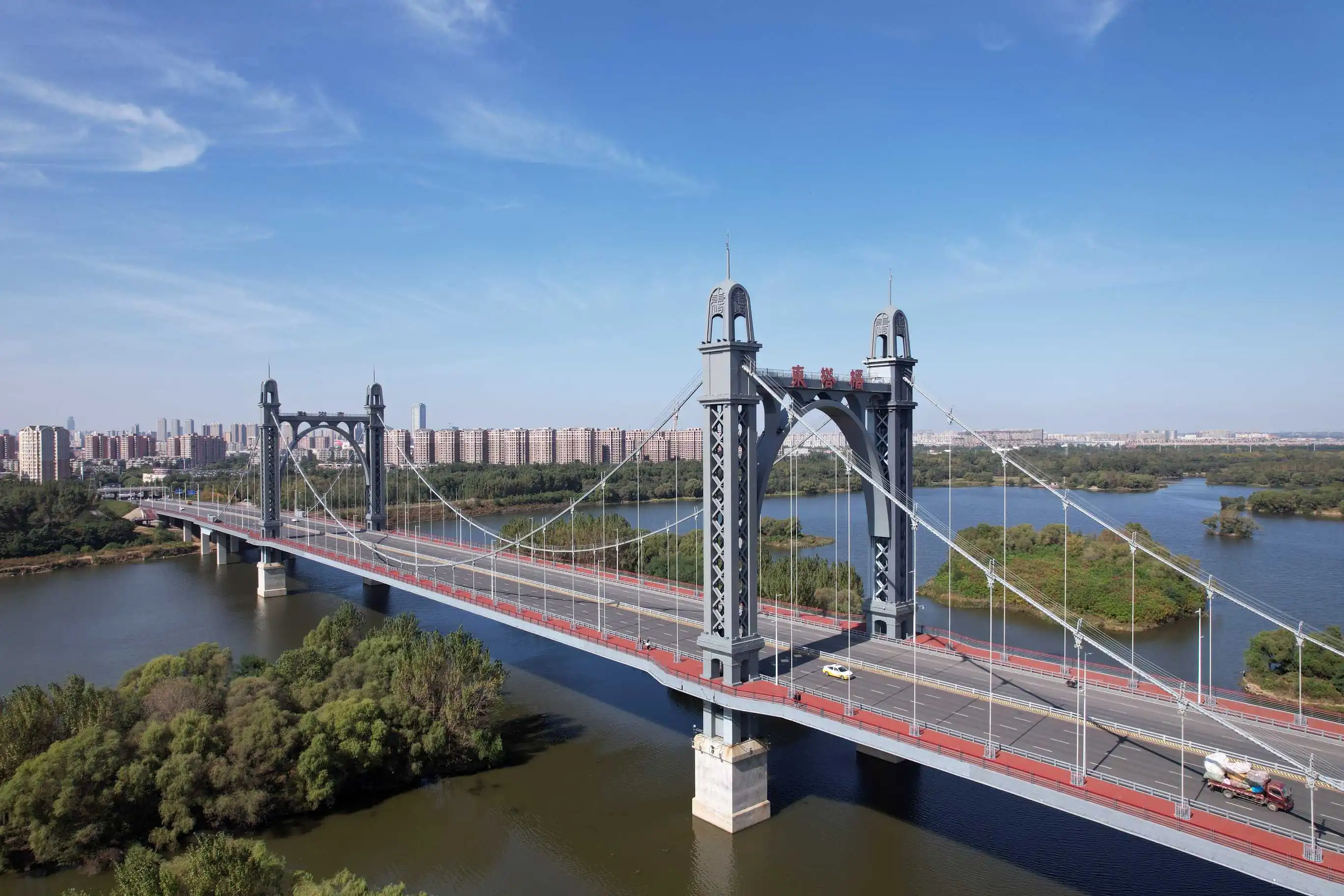
Advanced Load Distribution Techniques in Modern Cable-Stayed Bridges
Innovative Cable Arrangements for Optimized Load Transfer
Modern steel cable-stayed bridges employ innovative cable arrangements to optimize load distribution. Single and double-plane cable configurations offer different advantages depending on the bridge's specific requirements. Shenyang Zhongda's flexible design options allow for customization of main span ranges from 200 to 800 meters, catering to diverse project needs.
The company's use of BIM-based digital design enhances project visualization and allows for optimized cable arrangements. This approach not only improves load distribution but also contributes to the bridge's aesthetic appeal, creating iconic structures that blend form and function seamlessly.
Dynamic Load Management Systems
To enhance load distribution efficiency, contemporary cable-stayed bridges often incorporate dynamic load management systems. These systems use sensors and advanced algorithms to monitor and adjust tension in the cables in real-time, responding to changing load conditions caused by traffic, wind, or temperature variations.
Shenyang Zhongda integrates cutting-edge monitoring technologies, including 3D coordinate detection with 0.5″ total station accuracy, ensuring precise control over load distribution throughout the bridge's lifecycle. This proactive approach to load management significantly extends the structure's lifespan and improves overall safety.
Seismic Isolation for Enhanced Load Handling
In regions prone to seismic activity, effective load distribution during earthquakes is crucial. Shenyang Zhongda incorporates LRB800 type isolation bearings in their steel cable-stayed bridge designs, capable of reducing seismic response by up to 40%. This innovative approach allows the bridge to dissipate energy during seismic events, maintaining structural integrity and ensuring continued load distribution functionality even under extreme conditions.
Ensuring Long-Term Load Distribution Efficiency
Corrosion Protection for Sustained Performance
Maintaining the efficiency of load distribution systems over time requires robust corrosion protection. Shenyang Zhongda employs advanced corrosion prevention techniques, including PE outer sheaths with graphene inner coatings. This innovative solution provides up to 53 years of UV resistance, ensuring the bridge's load-bearing components remain in optimal condition throughout its service life.
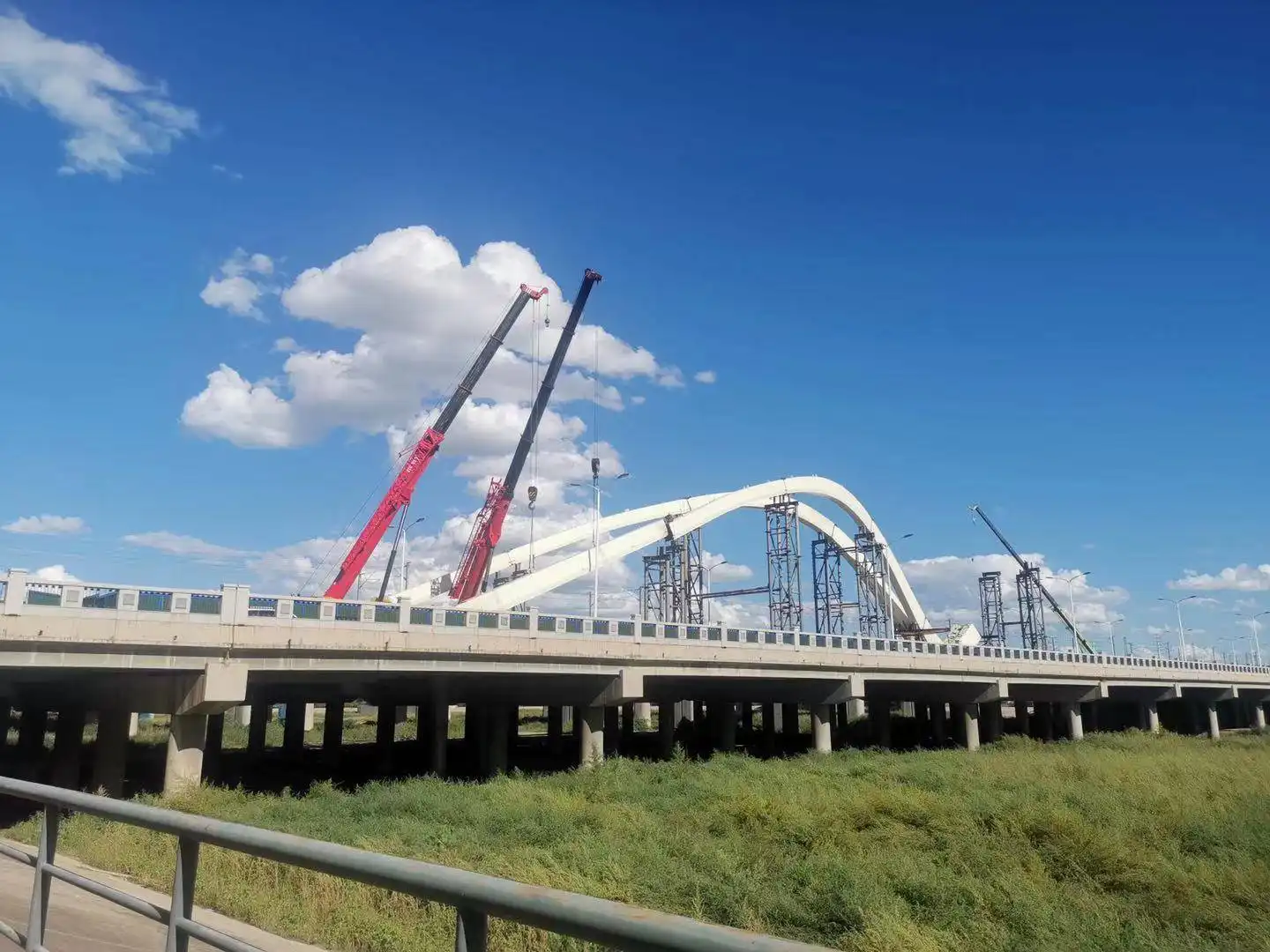
Regular Inspection and Maintenance Protocols
To guarantee continued efficient load distribution, regular inspections and maintenance are essential. Shenyang Zhongda's expertise extends beyond initial construction, offering comprehensive inspection services using state-of-the-art equipment. Their 3D coordinate detection capabilities, coupled with 0.5″ total station accuracy, allow for precise monitoring of the bridge's structural elements, ensuring early detection of any issues that could affect load distribution.
Adaptive Design for Future Load Requirements
As traffic patterns and load requirements evolve, steel cable-stayed bridges must adapt to maintain optimal load distribution. Shenyang Zhongda's forward-thinking approach incorporates adaptability into their bridge designs. This includes provisions for future cable additions or adjustments, ensuring the bridge can accommodate changing load distributions over its lifespan without compromising structural integrity or performance.
Conclusion
The efficient distribution of loads in steel cable-stayed bridges is a testament to modern engineering prowess. Through innovative design, advanced materials like Q420qE steel, and cutting-edge technologies, these structures provide safe, durable, and aesthetically pleasing solutions for long-span crossings. Shenyang Zhongda Steel Structure Engineering Co., Ltd.'s expertise in this field ensures that each bridge not only meets current load distribution requirements but is also prepared for future challenges, setting new standards in bridge engineering excellence.
Contact Us
Ready to elevate your infrastructure project with a state-of-the-art Q420qE steel cable-stayed bridge? Partner with Zhongda Steel for unparalleled engineering expertise, innovative design solutions, and superior quality assurance. Our team is committed to delivering bridges that not only meet but exceed your project's load distribution and performance requirements. Contact us today at Ava@zd-steels.com to discuss how we can bring your vision to life with our advanced Q420qE steel cable-stayed bridge technology.











